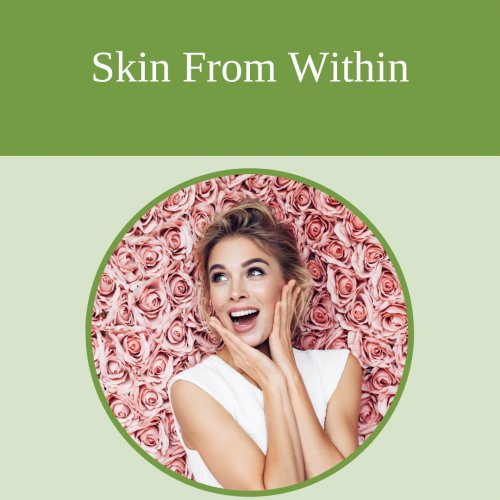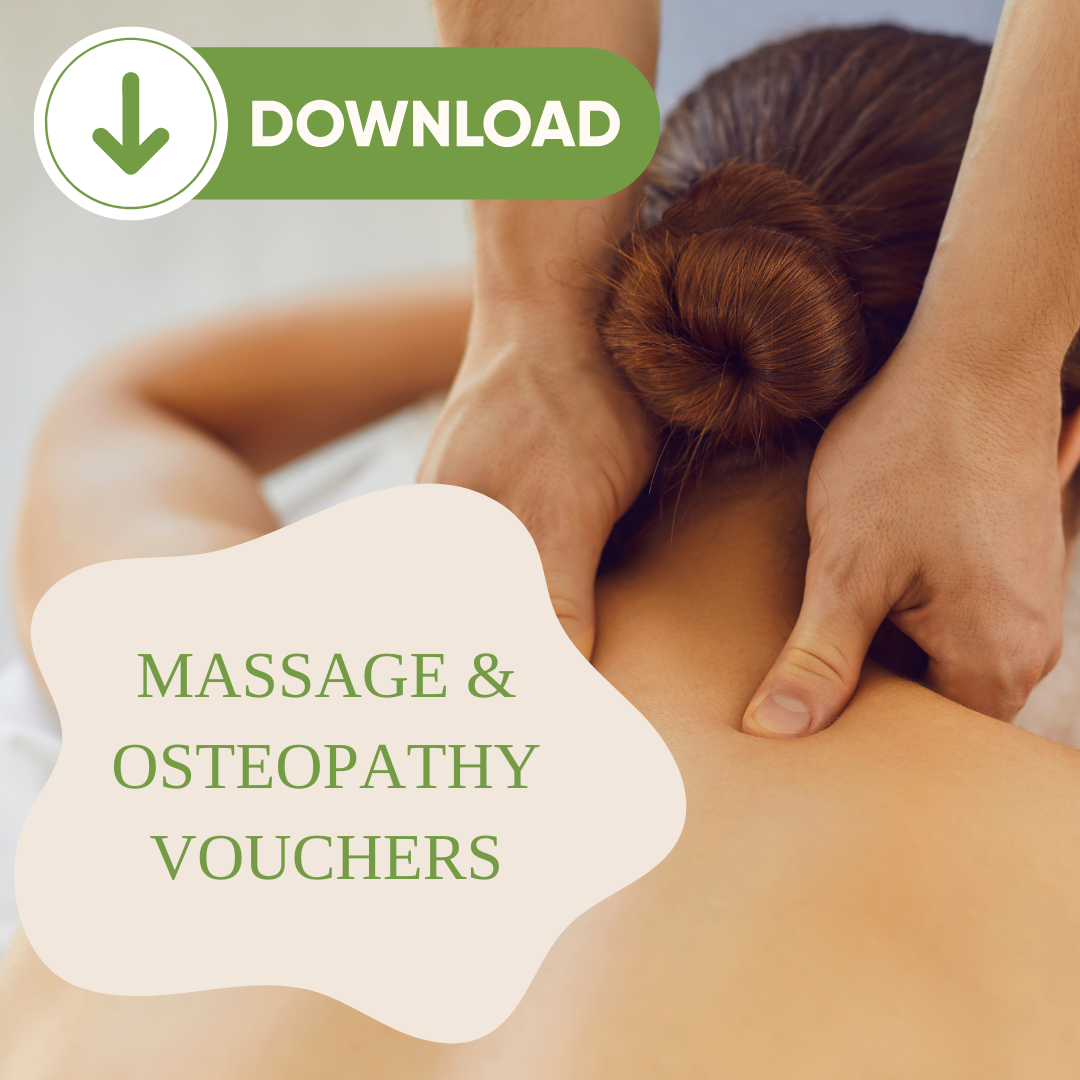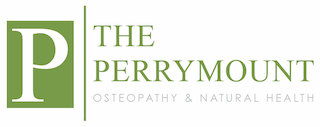At The Perrymount we believe beautiful skin comes from both the inside and the outside so not only what you put on to your body or what you do to your skin on the outside but also how you nourish yourself on the inside too. We are used to hearing about skin in connection with beauty rather than overall health.
The skin is one of our remarkably complex organs within the body, being the largest detoxification organ. A naturopath’s most fundamental view of the skin is that it is a reflection of our internal health so supporting you from the inside along with the use of high-quality topical products to help with cleaning and nourishing the skin directly from the outside, will help to achieve optimum skin health.
Common skin issues such as acne, psoriasis, eczema and rosacea would have a naturopath look closer at diet and lifestyle factors and the treatment plan might focus on the digestive system, the liver, hormones and stress systems. We would also be looking at external factors such as injury, environmental pollution (cosmetic and household cleaning products), damp, mould, LED light, smoking, diet and lack of sleep that can all contribute to skin issues.
We have 5 emails for you coming once per week filled with some tips and tricks to help you look after your skin from within. It even includes a few recipes packed with skin nourishing nutrients.
Dietary tips
The health and quality of the skin and it’s repair and rejuvenation processes require specific anti-oxidant nutrients such as vitamin A. Vitamin A is an essential nutrient needed for healing and the construction of new skin cells alongside other important nutrients.
Antioxidants are compounds that protect our cells from damage by free radicals that circulate in the body due to normal metabolic processes or externally from stress, diet, exposure to chemicals and pollutants. They are found in an array of colourful fruit and vegetable whole foods.
Vitamins B, C and E and minerals selenium and zinc are important for protecting the skin against free radical damage and stress related skin conditions. These nutrients are also involved in all cellular functions that help maintain healthy skin. Zinc, a key nutrient involved in skin health is often found to be in the lower level range in those who suffer with acne. This mineral is involved in wound healing, immune system activity, inflammation and tissue regeneration.
An easy way to get a nice range of these vitamins and minerals is simply to take a multi supplement. Or a specific supplement designed to support skin health. Have a look at one of our favourites in our clinic shop here:
https://perrymount-online.shop/products/hair-skin-nails-120-capsules?_pos=3&_sid=716254f7e&_ss=r
Collagen
Anyone that is interested in skin health has probably heard of collagen being helpful. Collagen gives your body the amino acids need to repair many things in the body, including hair, skin and nails. Supplementing with collagen is relatively easy as the powders are tasteless and can be added to smoothies, shakes, on to meals and even in coffee.
Collagen peptides can improve skin elasticity significantly and a study found oral collagen peptide supplementation significantly increased skin hydration after 8 weeks and the benefits effects lasted over 12 weeks.
If you wanted to cook something up at home bursting with collagen benefits then slow cooking up a bone broth would be amazing. If you want something quick and easy that you can use on a daily basis then a collagen powder is amazing. Have a look in our online shop. This very popular collagen is tasteless and can be added to visually any food or drink.
https://perrymount-online.shop/products/collagen-peptides-unflavoured-284g?_pos=1&_sid=ee499140e&_ss=r
Ever had a Bulletproof coffee?
Take an organic coffee, perhaps even one with added mushroom extract to throw in added benefits. Add a a knob of organic butter and then a scoop of tasteless collagen powder and blitz to make a delicious, skin supporting morning coffee.
Anti inflammatory diet
Skin conditions that include eczema, psoriasis, acne and rosacea have an inflammatory responses element that can be supported by eating and avoiding certain foods.
Omega 3 essential fats are a potent immune modulating nutrient that plays a powerful role in the production of prostaglandins which help regulate the production and movement of inflammatory chemicals. Include them into your diet by adding in oily fish and / or a plant derived version of omega 3. These sources include salmon, trout, herring, mackerel and sardines. Vegetarians can use linseeds, flaxseeds, chia seeds and a vegan omega 3 supplement.
Hypo- allergenic foods such as pears, apples, rice, most vegetables (except the nightshade family) most beans and legumes (except peanuts) and non- gluten grains eg millet, quinoa and amaranth will also help with reducing inflammatory reactions. Gluten is a well known inflammatory food to avoid.
Foods and herbs can also help support the body’s natural ways of cleansing. Raw and lightly steamed vegetables such as carrots, beetroot, peppers, pumpkin, broccoli, cauliflower, kale, watercress, rocket and cabbage all contain many antioxidants qualities. Lightly cooked garlic and onions have great detoxifying and anti-bacterial actions.
Polyphenol rich foods
Polyphenols are compounds that we get through certain plant based sources from the root to the fruit.They are packed with antioxidants and health benefits.
Foods such as fruits, vegetables, legumes, herbs, spices - think colourful food - contain polyphenols, By ‘eating the rainbow’ with lots of variation of coloured foods you can ensure to consume these all important nutrients.
Polyphenols examples :
Genistein - soy, alfalfa sprouts, red clover, chickpeas, peanuts, other legumes.
Conjugated linoleic acid (CLA) - walnuts, hemp seeds, almonds, chicken, flaxseed, chia seeds.
Docosahexaenoic acid (DHA) - a particular type of fat found in oily fish and fish oil supplements. Bluefin tuna, salmon, swordfish, sea bass, oyster, lobster, tilapia, sole, crab.
Epigallocatechin gallate (EGCG) - black tea, green tea.
Quercetin - elderberries, asparagus, sweet onion, lingonberry, red onion, kale, cranberry, capers, buckwheat, radicchio, acerola, onions, blueberry, watercress, apple, Brussels sprouts.
Resveratrol - peanut butter, peanuts, grapes, high quality organic red wine.
Ajoene from Allium sativum - garlic.
Vitamin D - swordfish, salmon, gardines, tilapia, sole, milk, chanterelle mushrooms, almond milk, eggs, shiitake mushroom.
Flavonoids: red, blue, purple pigmented foods : blueberries, blackberries, raspberries, aubergine, apples, tomatoes, peppers.
Eating the rainbow
Including a variety of colourful whole-foods in the diet can really make a difference in our bodies from all angles - think at least 7 portions of veg and 3 portions of fruit per day. Include protein and healthy fats with every meal.
Swaptions. Try swapping out these foods for healthy options
Fried foods
Processed foods
Alcohol
Excess caffeine (stick to 1 cup of organic coffee per day)
Refined sugars and sweeteners
Food additives such as MSG (E621)-found in takeaway foods - Chinese, Indian.
Environmental toxins
Smoking
Refined flours and wheats
Trans fats such as margarine, hydrogenated oils/vegetable oils
Non-organic foods such as dairy & meats
Non organic soy products
Any potential allergy/intolerance triggers.
Swap with:
Naturally gluten free whole grains such as buckwheat, amaranth, millet, quinoa, brown/wild rice, oats, sorghum, teff, nut flours, coconut flour
Pre & Probiotic foods such as kefir, fermented veg such as krauts & kimchi, organic and unsweetened yogurts (including coconut), miso, tempeh, natto
Good fats such as grass fed butter, ghee, raw extra virgin coconut oil, pastured eggs, olives, nuts & seeds (chia, sunflower, pumpkin, sesame), raw milk/cheese, goat’s milk & sheep’s milk products, Cold pressed extra virgin olive oil (don’t use for cooking)
Beans & Pulses
Anti-inflammatory foods including turmeric, cinnamon, ginger, chilli
Wild or Pasture raised meats (venison, rabbit, boar), organ meats (liver, heart, kidneys), eggs (hens, duck, quail) & dairy
Wild fish & shellfish such as wild alaskan salmon, mackerel, sardines, anchovies, herring, prawns
Homemade Bone Broths. Click here for recipe
Nuts such as macadamia, hazelnuts, walnuts, almonds, Brazil, pecans (easier to digest once soaked overnight, also known as ‘activated’, unsweetened nut milks & nut butters
Seeds such as chia, hemp, sunflower, pumpkin, sesame, linseeds (freshly ground or oil)
Seaweeds & algae
Minimum 70% dark chocolate, raw cacao powder, cacao nibs
Wild or organic berries - great for topping onto oats, chia seed puddings, or yogurts & kefir
Herbal helpers
Turmeric - has an anti-inflammatory action and protects the skin by quenching free radicals. Adding small amounts of either ginger or black pepper to turmeric makes the active compound curcumin more bio-available to the body. Aim to add 1 tsp of turmeric within the diet daily. Add to soups, stews, curries, porridge, turmeric lattes with almond milk, scrambled tofu or eggs.
Ginger - can be used to improve circulation and digestion and to enhance the effectiveness of other herbs and spices. Add fresh or frozen pieces into hot water in the mornings or grated into stir-fries or porridge’s.
Frankincense - an anti-inflammatory herb used in skin conditions such as psoriasis.
Aloe vera - used topically to soothe and cool inflamed skin. Aloe vera leaf gel, taken internally can support the gastrointestinal tract which overall can help reduce skin toxicity.
A cream of calendula, chamomile or chickweed will be soothing and healing. Essential oils of peppermint or lavender can be used to help ease and relieve itchiness
Skin Supporting Recipes
Winter Berry Superfood Porridge
This superfood quinoa porridge is a warming, soul nourishing bowl of goodness, packed with protein, fibre, healthy fats, antioxidants from the mixed berries on top.
Ingredients (Serves 2)
- 1/2 cup uncooked quinoa
1 cup rolled oats
2 cups almond milk
2 cups filtered water
1 tsp cinnamon, 1/2 tsp ginger,
2 tbsp honey, maple syrup, date syrup,
2 tbsp of each ; flaxseeds, hemp seeds and chia seeds
Toppings
1 cup of mixed berries - blueberries, raspberries, blackberries, strawberries.
1/4 cup chopped nuts, almonds or walnuts.
1 tbsp coconut yogurt
How to :
Add the quinoa, oats, almond milk, water, cinnamon and ginger to a small stove pot. Stir together and bring the liquid to a boil on a medium heat. Once bubbling away, reduce to a low heat and simmer until the oats are soft and liquid has been absorbed around 10-15 mins.
To up your breakfast game here. Add some filtered water to the quinoa and oats and put in the fridge overnight. This improves digestibility and also breaks down certain “anti” nutrients in the grains and makes them more healthy.
Back to the heating…. Remove the porridge from the heat and stir in the honey/maple syrup, hemp, flax and chia seeds.
Divide the porridge between two bowls and top with fresh or frozen berries, coconut yogurt and crushed nuts.
Rosy Red Smoothie
This smoothie is bursting with polyphenols from the deep purple/blue foods like blueberries that support gut health and fight inflammation. Chia seeds are great for soothing an inflamed gut lining. Sour cherries help to support the liver detoxification process paired with beetroots which are high in fibre and have a beautiful potent pink pigment boosting out antioxidant status.
Ingredients ( serves 2)
1/2 cup blueberries ( fresh or frozen)
1/2 cup blackberries
1/2 cup cherries
1/2 fresh chopped beetroot
1 pear, de-cored and peels
1 banana, peeled and chopped
1 tbsp chia seeds (soaked in 3 tbsp water overnight)
400ml unsweetened plant milk - almond, oat,
How to:
Prepare fruits and veg then place all ingredients into a blender.
Blend until desired consistency is reached. Add more water if needed to thin it out.
Protein upgrade - Add in your favourite collagen powder. Collagen is great for the skin and it will add a protein source to this smoothie which is quite high in carbohydrates over all. This will give it a better over all protein/fat/carbohydrate balance, which is particularly helpful if you know your Body Biotype food balance or metabolism speed.
Golden Glow Cauliflower Dal
Made with ginger, turmeric, cauliflower, red lentils and coconut milk - this dish is full of polyphenols, antioxidants, protein, healthy fats and vitamin A. A true winter warmer that will nourish from within.
Ingredients (Serves 4)
3 tbsp melted coconut oil
2 tbsp garlic and ginger paste ( homemade or store bought)
1 small red chilli, finely diced
400g red split lentils / yellow split lentils
2 tsp ground turmeric
1 whole cauliflower, use both florets and leaves
2 cups peeled and chopped carrots
1 tin 400ml coconut milk
2 tsp garam masla
1 tsp ground cumin,
salt & pepper
1 cup cherry tomatoes
2 cups spinach
squeeze lemon juice
Homemade garlic and ginger paste : add 1 tbsp chopped garlic, 1 tbsp chopped ginger, 1 small red chilli finely chopped, 2 tbsp extra virgin olive oil. place ingredients in a bowl and smash together into a paste consistency.
How to:
Add 1 tbsp coconut oil in a frying pan and stir in the garlic, ginger and chilli paste. Cook for 1 minutes until fragrant then tip in the lentils, chopped carrots and turmeric and give a good stir.
Pour the coconut milk into the pan to cover the lentils. The liquid should reach about 5cm above the lentils, add some water if need be. Bring the mixture to a boil on a high heat then reduced to a low heat just until the water is burping. Simmer on a low- medium heat for 30 minutes, occasionally stirring the mixture . Cook until the lentils and carrots have softened. Add splashes of water into the mixture if it is beginning to look dry.
Meanwhile the dal simmers, preheat the oven to 220 degrees, gas mark 7. Wash and chop up the cauliflower into florets and finely cut up the leaves. Place all onto a baking tray, drizzle over the remaining coconut oil and sprinkle over the cumin and garam masala then season with salt and pepper. Toss the tray around making sure the cauliflower is coated in the spices.
Roast the cauliflower in the oven for 25-30 minutes, halfway through take the tray out, give it a shake to turn over the florets and place back in the oven.
Back to the dal, stir in the cherry tomatoes and spinach and cook for 5 minutes. Squeeze in the lemon juice and season with salt and pepper to taste. Once the cauliflower has cooked, tip the cauliflower florets and leaves into the dal and give it a good mix.
Serve up the dal into bowls. Option to top with coconut yoghurt or roasted cashew nuts.
Toxins in skin products
In general, the key to great skin not only comes from what you put on your skin but what you put into your body. Minimising environmental toxins such as products containing parabens, phlatates and sodium laurel sulphates (SLS) is a big start.
Did you know your body absorbs most of what you put on your skin so check your product ingredient labels (including your SPF, laundry detergent and soaps).
Try to avoid the following within usual daily products, make sure to read the labels and opt for more natural products without:
-Petroleum derived products e.g. baby oil
-SLS/SLES – derived from petroleum
-Parabens and preservatives
-Propylene glycol (locks in moisture)
-Bleach (contained in brightening and whitening products.)
-Aluminium (preservatives, holds fragrance well, deodorants)
Ageing
Ageing which can be seen in skin quality is accelerated with free radical damage within our cells. Food in excess such as caffeine, alcohol, sugar, wheat and dairy consumption, smoking, pesticides, lack of sleep and stress all increase free radicals in our body wreaking havoc and accelerating ageing both on the inside and out.
Opt for organic products where necessary, cut down on the caffeine, alcohol and smoking (if applicable). Reduce intake of refined sugar, wheat and dairy products. Aim for at least 8 hours of un-interrupted sleep per night and evaluate stress management, trying to implement strategies such as mediation, yoga or box breathing.
Acupuncture
Within Traditional Chinese medicine (TCM), skin diseases may be classified as ‘hot conditions’ which often link to inflammatory states or hormonal disturbances. For example, Acne is often considered as ‘heat in the stomach’ caused by heating foods and drinks such as fried foods, spices, alcohol, drugs and junk food. Eczema is considered as ‘heat in the blood’ which may be caused by environmental toxins including medications, stress or hormonal imbalances.
For any skin disorder, acupuncture can help cool the body down by altering the hormonal balance, calming of the patient and reducing the amount of adrenaline in the system by shifting the nervous system from a state of stress to calm.
Skin detox
Skin maintenance involves removing dead skin cells that clog up pores making it difficult for proper elimination via the skin. Skin brushing, starting at the feet, stroking up towards the heart all over the body is an effective activity to help stimulate lymph flow.
A tepid shower or detox bath following a skin brushing session will enhance its effects. Adding Epsom salts, magnesium chloride flakes, Himalayan salts or apple cider vinegar to a bath will also support detoxification.
At The Perrymount Clinic
The Perrymount Clinic is able to support you with skin health both from the outside and inside. Our incredible PureHydro facial machine for the outside and nutrition, naturopathy, acupuncture and massage to shift lymph stagnation from the inside. If you have any questions please do contact us on 01444 410944.
PureHydro
Have you had our PureHydro facial at The Perrymount Clinic? It’s a 7 in 1 facial combining clearing skin debris, oxygenation, hydration, anti-wrinkle lifting and more. It’s non-invasive and will leave you glowing. Learn more here:
https://www.theperrymount.com/purehydro/
Skin support supplements
We have a lovely range of supplements in our online shop which includes hair, skin and nail support.
Collagen powders
Hair, skin and nail supplements
Omega 3 fish oils
Mushroom coffees
https://perrymount-online.shop/
Blog post | The Perrymount Clinic 01444 410944
Call to book or for more information 01444 410944

Healthy Skin From Within


The Perrymount Clinic
Unit 5
Hurstwood Grange
Hurstwood Lane
Haywards Heath
West Sussex
RH17 7QX
01444 410944
info@theperrymount.com
